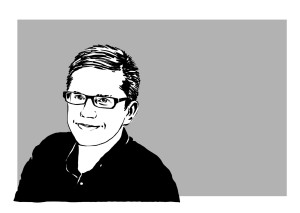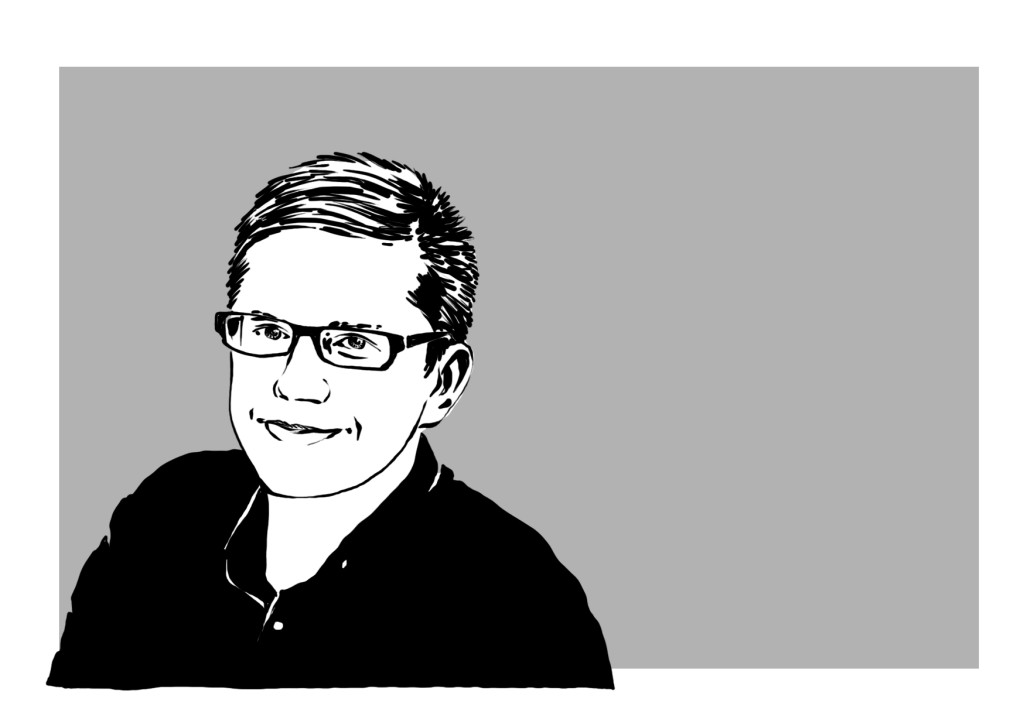In their piece, Markus Jachtenfuchs and Nico Krisch depart from the observation that global governance consists of a multitude of international institutions. They problematize, however, the relationship between those institutions on the one hand, and national sovereignty on the other. In their view, it is the perception of an unbalanced distribution of political authority in favour of the former which puts “the very idea of a liberal international order based on ever-stronger international institutions” at stake. Jachtenfuchs and Krisch argue that the principle of subsidiarity can mediate between legitimate demands to allocate political authority either at the domestic or at the international level.
I hold that the clear distribution of political authority among international institutions themselves is, at the least, an equally important task to save the liberal international order. The reason is that, although international institutions regulate individual areas of transnational governance—like trade, security, climate change, or financial assistance—they do not operate in isolation from each other, but overlap in their competences. With regard to international financial assistance, for example, the competences of the International Monetary Fund (IMF), the World Bank, and several regional development banks overlap. In the realm of international security, NATO overlaps with the Common Security and Defence Policy (CSDP) of the European Union (EU). The trade–environment nexus features an overlap between the World Trade Organization (WTO) and several environmental institutions, such as the United Nations Framework Convention on Climate Change (UNFCCC), the Ozone Protection Regime, and the Biodiversity Regime. However, in contrast to nation states and to the EU, the global governance system lacks a meta-authority that coordinates the governance activities of overlapping international institutions, mediates in case of inter-institutional conflict and, in the end, makes a final decision. At the same time, the demand for a clear allocation of political authority among overlapping international institutions cannot be met by applying the principle of subsidiarity. The latter can allocate political authority across different levels of governance, but not on the same level. So, how is the allocation of political authority among overlapping international institutions possible?
I argue that institutional overlap triggers inter-institutional adaptation which gives rise to a functional division of labour among overlapping international institutions. To develop my point, I demonstrate that institutional overlap changes global politics by giving states new opportunities for strategic action, and that it challenges the ability of global governance arrangements to enable cooperation among states and to provide global public goods.
The liberal international order is challenged not only by states and civil society actors insisting on national sovereignty, but also by states pursuing their interests cross-institutionally on the international level. Institutional overlap provides states with opportunities of ‘institutional choice’. They can frequently choose within which overlapping institution they pursue a particular political goal. That is, states can decide within which of the overlapping institutions they table a policy proposal (on trade matters, for example, within the Trans-Pacific Partnership, within the Transatlantic Trade and Investment Partnership, or within the WTO); which of the overlapping institutionalized rules they implement in case of conflict (with regard to trade with genetically modified organisms, e.g., those of the WTO or those of the Cartagena Protocol on Biosafety); and even which dispute settlement mechanism they use to resolve inter-state disputes (in case of an economic dispute, e.g., those of regional trade agreements such as NAFTA and Mercosur or the one of the global WTO); or which institution they use for a military intervention (e.g., the CSDP or NATO). States may even use international institutions to contest the governance activities of other international institutions, a phenomenon that is described as ‘contested multilateralism’ by Julia Morse and Robert Keohane. For example, rising powers, such as Brazil, China, and India, increasingly contest the existing global governance structures that were established by Western powers and continue to favour them by creating ‘their own’ international institutions that overlap with and compete against the former. In 2014, the BRICS countries established the ‘New Development Bank’, and China launched the ’Asian Infrastructure Investment Bank’. Both banks overlap with the World Bank and, in part, also with the IMF. In sum, institutional overlap changes global politics, because it gives states opportunities to pursue their interests not only within, but also between international institutions. In doing so, states take advantage of inter-institutional influence to pursue their political goals. This explains why institutional overlap is even deliberately created by states. It has become a strategic resource in global politics.
The problem is that by pursuing cross-institutional politics states may compromise the ability of international institutions to enable cooperation among states and to provide global public goods. If they, for example, implement only those of the overlapping institutionalized rules that create the least costs for them, cooperation among states is compromised and global public goods are underprovided. What is more, institutional overlap calls the regulatory coherence of global governance arrangements into question and triggers inter-institutional competition for competences (turf wars). To preserve their competences, international institutions are dependent on resources which are at the disposal of states. If international institutions do not supply what states demand, the latter withdraw their resources and the former lose relevance. Think of NATO and its endeavour to find a new raison d’être after the end of the Cold War. All in all, these challenges for global governance create the demand for a clear allocation of political authority among overlapping international institutions. How can that be done?
States can induce processes of inter-institutional adaptation which give rise to a functional division of labour. The function of the latter is to allocate political authority among overlapping international institutions. As long as states are dependent on international institutions to realize important policy goals, they are not only inclined to pursue their interests cross-institutionally, but also to preserve international institutions’ capacity to produce global public goods. This leads those of them that are members of all overlapping institutions (‘overlapping members’) to take into account how their behaviour affects the production of global public goods in all overlapping institutions when exploiting their possibilities of institutional choice. For example, when they adopt new regulations to mitigate climate change, they take into account how these regulations affect international trade.
This creates the opportunity structure for the differentiation of governance tasks among overlapping institutions, which consist either of mutually complementary institutional specialization or the adaptation of existing institutionalized rule sets. Institutional specialization allows international institutions to avoid inter-institutional competition for state resources by taking over regulatory tasks or operational areas that they are better suited to provide than their competitors. Adaptation of existing rule sets implies that the overlapping institutions anchor each other’s central regulatory objectives within their institutionalized rules. In sum, inter-institutional adaptation dissolves institutional overlap, deprives states of their opportunities for institutional choice, and renders inter-institutional competition latent. Unintended by states, inter-institutional adaptation leads to the emergence of a functional division of labour. The latter allocates political authority among overlapping international institutions and therefore serves as the organizing principle of an inter-institutional order.
The global governance of public-health-related intellectual property rights within the World Health Organization (WHO), the World Intellectual Property Organization (WIPO), and the WTO demonstrates how a functional division of labour can emerge. In reaction to institutional overlap, the WHO specialized on the regulatory function of knowledge creation. It started publishing reports on the implications of the agreement on Trade-Related Aspects of Intellectual Property Rights (TRIPS) on public health. The WTO adapted its rules on the protection of intellectual property rights. It adopted the ‘Doha Declaration on the TRIPS agreement and public health’, which stipulates that public health related concerns trump the protection of intellectual property rights. WIPO specialized on assisting countries in the Global South to implement their national regulatory system in a manner that is compatible with the TRIPS agreement.
In essence, therefore, my response to Markus Jachtenfuchs and Nico Krisch is that, to save the liberal international order, it is not only necessary to rely on the principle of subsidiarity to balance the allocation of political authority between the domestic and at the international level, but also to build functional divisions of labour to distribute political authority between overlapping international institutions.
 Dr. Benjamin Faude is Senior Research Fellow for the Global Governance Unit at the WZB Berlin Social Science Centre. His research focuses on the implications of institutional overlap on global governance. After visiting scholarships at the University of California at Berkeley and the Vrije Universiteit Brussels, he joined the WZB in 2011, coming from the University of Bamberg, where he held a grant from DFG Training Group ‘Markets and Social Systems in Europe’ and earned a doctorate summa cum laude. He has published in leading international journals such as ‘The Review of International Organizations’, ‘Global Governance’, and ‘Global Environmental Politics’. He recently published his first book. Faude has taught at the University of Bamberg, at Free University Berlin, and at Charles University in Prague.
Dr. Benjamin Faude is Senior Research Fellow for the Global Governance Unit at the WZB Berlin Social Science Centre. His research focuses on the implications of institutional overlap on global governance. After visiting scholarships at the University of California at Berkeley and the Vrije Universiteit Brussels, he joined the WZB in 2011, coming from the University of Bamberg, where he held a grant from DFG Training Group ‘Markets and Social Systems in Europe’ and earned a doctorate summa cum laude. He has published in leading international journals such as ‘The Review of International Organizations’, ‘Global Governance’, and ‘Global Environmental Politics’. He recently published his first book. Faude has taught at the University of Bamberg, at Free University Berlin, and at Charles University in Prague.
References upon request.
